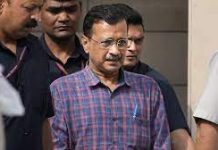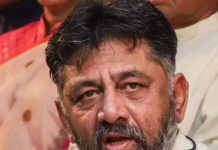
Among other things that will have an impact on our lives in the new, post-COVID world, the biggest and the largest will probably result from emerging technologies like Artificial Intelligence and Machine Learning. A report by TEHELKA BUREAU
Giving the digital revolution due cognizance, the government, as early as 2017-2018 prioritized building AI capabilities and mandated NITI Aayog to start a national programme to direct efforts in this area. Consequently, National Strategy for AI — #AIforAll, was launched in June 2018. It focuses on leveraging Artificial Intelligence for inclusive growth in line with the Government policy of Sabka Saath Sabka Vikas. The approach is to leverage exponential technologies toward inclusive growth, develop population-scale AI solutions for societal needs and leverage India’s unique position to be a global leader for inclusive technologies.
The National Education Policy 2020 further acknowledged the importance of Artificial Intellignce and emphasized on preparing students for an AI driven economy. The policy focuses on making education more experiential and future-oriented, building crucial skills such as data analysis, computational thinking etc. from a young age through teaching of contemporary subjects such as Artificial Intelligence.
The 2021 Government of India Union Budget also announced a ‘Digital First Mindset’ and the proposed National Digital Educational Architecture (NDEAR) will further help create a new approach in the education system and become a cornerstone for advancing digital education architecture and infrastructure.
An AI driven economy requires rigorous programs and interventions to address current and future AI skill gaps and empower a larger non-technical audience with AI social skills and tech skills for real world applications.
To address the requirements for being ‘future-ready’ and as part of its vision of a future which is Responsible, Inclusive and Sustainable, Intel has been working in close collaboration with governments world over. In India, Intel partnered with the Central Board of Secondary Education (CBSE), Ministry of Education (MoE) and the Ministry of Electronics and Information Technology (MeitY), Government of India, to help build AI readiness through various programs and initiatives.
These programs are designed to reach out to people, especially the youth across the country, and nurture an AI ecosystem empowering the next-gen to become
AI ready.
With CBSE, Ministry of Education, Intel India curated relevant content keeping in mind the needs of a digital future. This knowledge is being transferred by organizing hands-on skilling sessions for the youth pan India in the form of boot camps, in class teaching-learning, live session etc., where learners are taught the basics of
AI, its application etc.
These youngsters are then encouraged to look around themselves and find local problems to solve with the intervention of AI. They are offered one on one mentoring sessions with Intel coaches to develop social impact projects.
As an effort to nurture an AI ecosystem, a students’ community known as AISC or Artificial Intelligence Student Community has been co-created by CBSE and Intel India. Young AI enthusiasts have taken a shine to it and the online community has 19,000 plus members who actively attend training, participate in debates, discussions and join guest lectures organized with industry experts from wide-ranging fields such as climate crisis,Social Development Goals, IPR, AI ethics, AI startups etc.
Another exclusive program ‘Responsible AI for Youth’ to provide opportunities to students from government schools pan India was launched in partnership with MeitY. Designed by National e-Governance Division (NeGD), and Intel India the aim of the programme is to empower youth to become ‘AI ready’ and help India become a talent hub for skilled workforce which would be hugely in demand within a few years.
The fact that India was among the very few nations which recognized the need to start skilling its people, ‘Responsible AI for Youth’ reached out to more than 52, 000 students in 35 states and UTs. Since January this year, after being chosen over a thousand others, 125 students have been working relentlessly on developing AI enabled indigenous solutions for community issues. In the next few months, a showcase may be planned to share these real time solutions.
Shweta Khurana, Director- Asia Pacific and Japan, Government Partnerships & Initiative, Intel, often reiterates Intel’s aim to work with 30,000 institutions the world over to empower 30 million youth with AI to support United Nations’ Sustainable Development Goals. Talking at an education forum recently, she re-affirmed the company’s intent to aid government’s efforts to demystify and democratize AI for All, “Digital readiness encompasses not only learning new skills, but also trusting emerging technologies like AI and its applications and building further on them for larger good”.
As part of the CBSE-Intel MOU signed in February 2020, one of the areas of proposed collaboration had been to provide students with internship/ apprenticeship opportunities. A week-long virtual apprenticeship- a first-of-its-kind event was organized recently- in partnership with the National Youth Council, Singapore and the Institute of Technical Education, Singapore. For Indian students working and interacting with their peers from Singapore, and learning from the best in tech start-ups there, proved to be an enviable opportunity.
In tune with the Diversity and Inclusion policy of the nation and the tech giant, special focus has been given to skilling youth in North Eastern Region — Tripura, Arunachal Pradesh, Sikkim along with the Aspirational districts of Dahod in Gujarat, Yaadgir in Karnataka, Visakhapatnam in Andhra Pradesh and Geysling in Sikkim
As a nation we will do well to remember that maybe few years down the line, not only will there be a profusion of jobs with technical aspects like a Data Specialist or an IoT Specialist but jobs with a non-technical inclination like that of a doctor or a teacher will also be augmented with AI fusion. So, it is time that we provide AI for All to ensure a successful human and machine partnership in a responsible environment, in the new economy.
On the first anniversary of the National Education Policy 2020, with the aim to raise awareness and demystify AI for the general public, CBSE, MOE and Intel launched AI for ALL. It is a 4-hour self paced micro learning programme which works to give a basic understanding of AI for everyone, be it a student, a stay-at-home parent, a professional in any field or a senior citizen. The program is divided into two sections: AI Aware, and AI
Appreciate. Each section includes images and interactive activities with a short and easy quiz. Every user who completes these quizzes, can download his/her own AI Aware and AI Appreciate badges and even share it on social media. It is available in 11 Indian languages, is compatible with various talkback applications to make it accessible for visually impaired citizens and is currently hosted on CBSE website.
Going forward any national AI policy has a bigger role to play as the world looks at automation along with reskilling and upskilling the workforces to revitalize and rebuild human capital. As we witness a digital commotion taking place around us, it is amply clear that in the post-COVID world, we will need to arm ourselves with human digital readiness based on creating skilled workforce, trust, responsible usage for all the emerging technologies, to make the best of this.
tehelkaletters@gmail.com













